In the last 100 years, much of the genetic diversity of our food crops has been lost and continues to be threatened by industrialized agribusiness. Estimates from the UN Food and Agriculture Organization (FAO) suggest that “the diversity of cultivated crops declined by 75% during the 20th Century and a third of today’s diversity could disappear by 2050”.
The Mother Garden Biodiversity Program curates a living plant and seed collection of over 3,000 varieties of heirloom, open-pollinated annuals and over 1,000 varieties of edible, medicinal and ornamental, habitat-friendly perennials. Our collection, developed over the past 40+ years through biointensive horticulture at the OAEC site, emphasizes food crops of special genetic, cultural and historic importance that are appropriate for our bioregion. We aim to select for new varieties that can endure unstable weather patterns, water insecurity, poor soil conditions, pest pressures, shrinking open space, … in short, peak-oil, peak-water, peak-population, peak-everything. Our changing climate and ever more challenging economic circumstances require that we move away from conventional mono-crop agribusiness and toward a resilience based model of farming. The relentless advice that we get from nature toward this end is “diversify, diversify, diversify.”
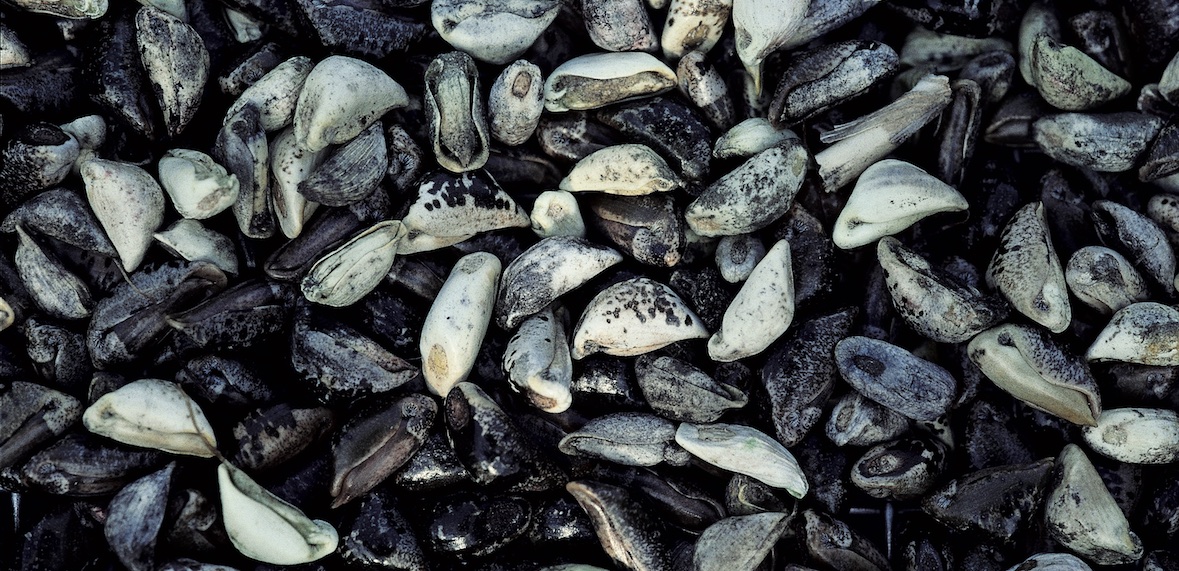
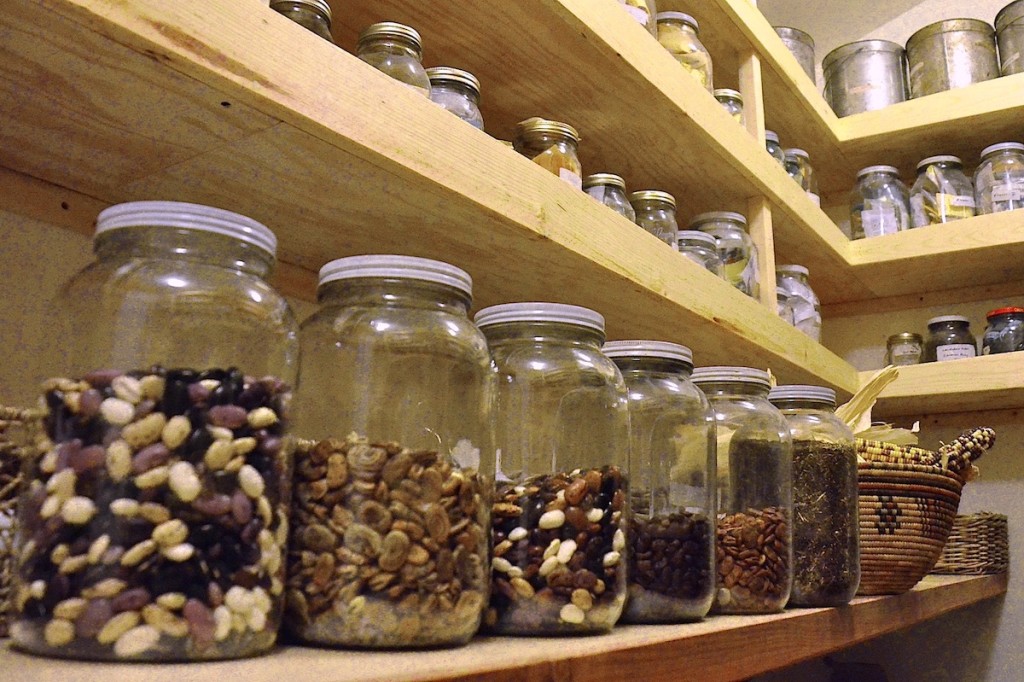
While seeds have a remarkable capacity to be stored, the viability and germination rate does depreciate over time. Seeds are not meant to be horded, but rather planted out, multiplied, and saved again in a cyclical living interaction between farmer and seed.
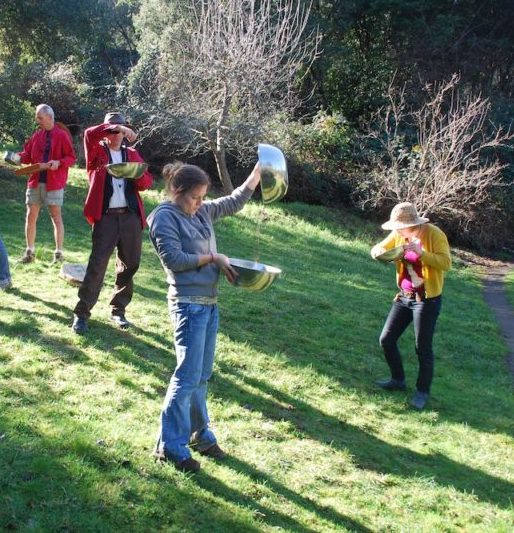
Sow Seeds. Save Seeds. Swap Seeds.
OAEC gives away over 100 pounds of seeds every year! In addition to seed donations to community groups, we host three of the largest Seed Exchanges in California: the Ecological Farming Conference, Bioneers, and the Sonoma County Seed Swap. Nothing brings us more joy than to gather with our neighbors to share seeds, scions and stories.
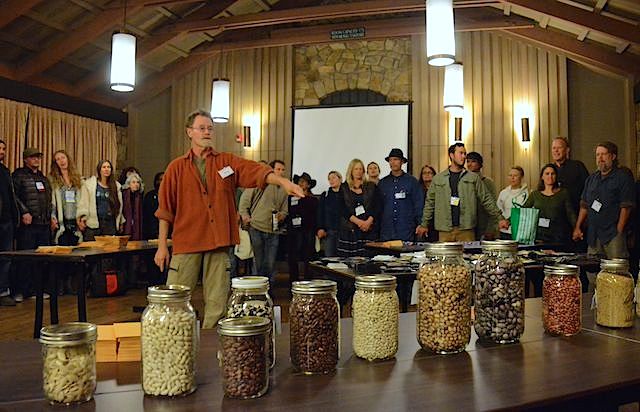
Wild Seed Tending
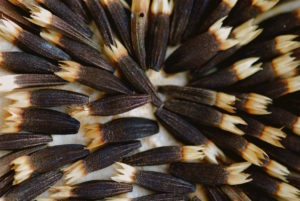
We also steward wild seeds in the OAEC backcountry. Using the “shuck and huck” method, we intentionally gather and spread seeds of desirable or endangered native plants, such as erosion-preventing perennial bunch grasses and edible plants such as yampah which are of importance as food crops to the Southern Pomo/Coast Miwok peoples. Learn more about Wildlands Restoration here>
Seed Sovereignty Advocacy and Human Rights Work
Seed saving is a deeply political act. At OAEC we save, grow, promote and teach people about open pollinated seeds because, second only to climate chaos, seed sovereignty is one of the most pressing agricultural issues of our time.
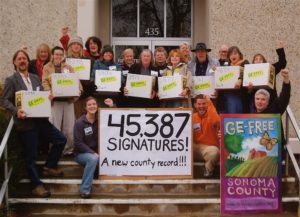
Since our founding, OAEC has been deeply committed to the fight against Genetically Modified Organisms. Executive Director Dave Henson helped to co-found the national Genetic Engineering Action Network and Californians for GE-Free Agriculture (Cal GE-Free) and in 2004 led the first ballot initiative to ban the planting of GE crops in Sonoma County. In 2008, Cal GE-Free won the passage of the first California state law to regulate GE crops. The law, AB 541, protects farmers from being sued by biotech companies when GE crops contaminate the non-GE crops in a farmer’s field.
OAEC participated in a coalition that helped pass California State Assembly Bill 1810 which means that all sharing, giving, exchanging, swapping, or other methods of freely receiving and giving away seed are newly protected under state law in California. Read the blog post>
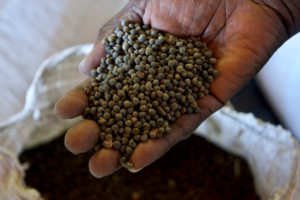
In 2017, after hurricane Matthew devastated Haiti’s seed supply, OAEC led a major fundraising effort and brokered seed relief by purchasing local seed at a fair price from peasant farmers from unaffected areas of the island and donating it to farmers whose seed had been destroyed. Read more about the Haiti project>
OAEC continues to be engaged in Seed Sovereignty issues – from local to international – and is committed to strategic action to preserve integrity and access to a healthy and diverse seed supply for all.
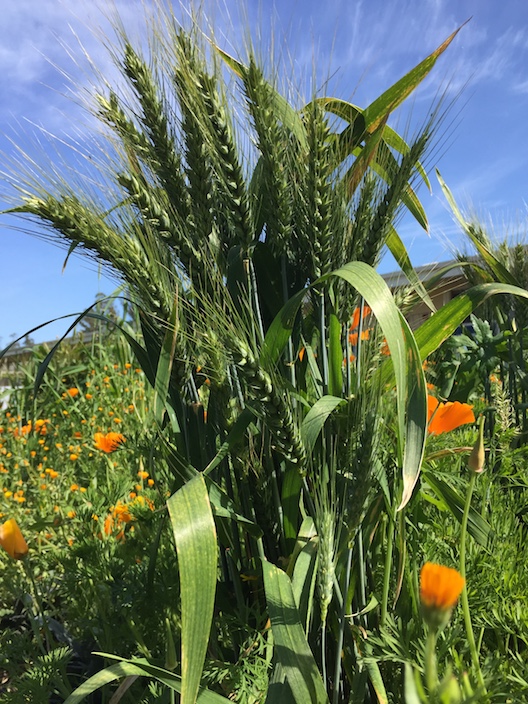
Plant Breeding for Climate Adaptation
With an increasingly unstable climate and a continued collapse of agricultural biodiversity, OAEC participating in a process known as “Evolutionary Participatory Plant Breeding.” In collaboration with local Sonoma County tribal, community, and school gardens and local farms, we have mixed and planted together over 550 varieties of bread wheat from all over the world in several plots throughout Sonoma County. The goal of this process is to create unique, place-adapted, resilient strains of one of our most important food crops. By putting seed breeding back into the hands of farmers and gardeners, we are hoping to create a seed supply that can thrive in a changing climate. Learn more about OAEC’s wheat breeding project here.
Teaching the Art of Seed Saving
Participants in our School Garden Teacher Training and Permaculture Design Certification at OAEC get a chance to delve into the practice of seed saving, including an overview of plant selection, pollination, variety stabilization, and history.
OAEC’s Resilient Schools Program published a curriculum guide for elementary school teachers that links seed-saving activities to California Education Standards.
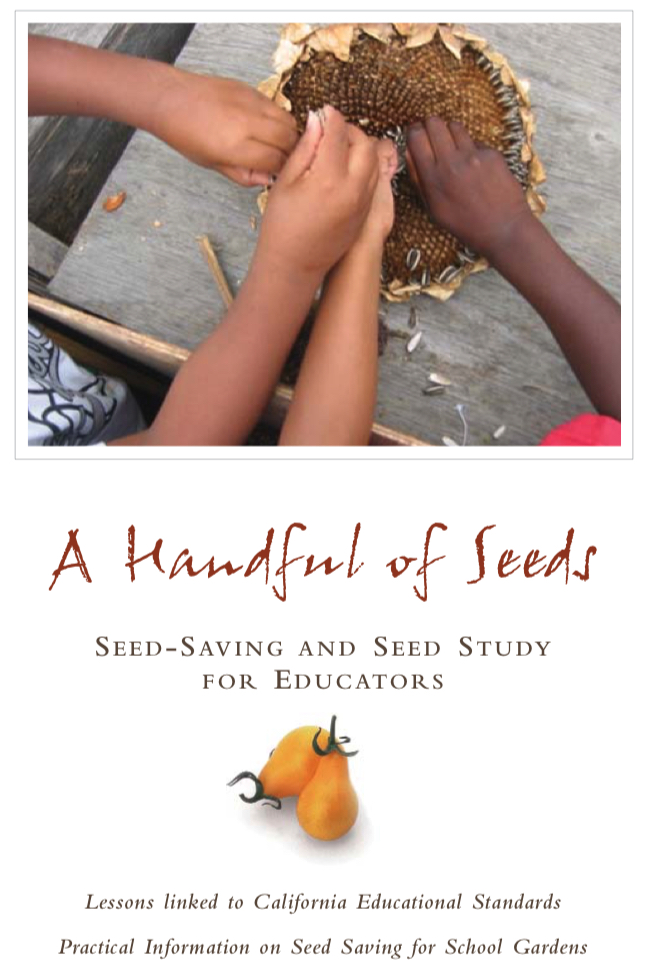
Resources
Seed Savers Exchange – www.seedsavers.org/learn
Organic Seed Alliance – seedalliance.org
Seed Libraries – www.seedlibrarynetwork.org
Teaching Seed Saving – www.lifelab.org/2012/08/seed-saving/
Manifestos on the Future of Food and Seed by Vandana Shiva
The Centrality of Seed: Building Agricultural Resilience Through Plant Breeding by Salvatore Ceccarelli, PhD
Invocation to the Seed
by Doug Gosling
We have not existed apart from you. We would not exist without you. We cannot survive without you.
You are the germ! You are the grain!
You wait in the darkness of earth many, many times longer than you might live above ground. What are you doing down there? What are you dreaming down there?
You are so many brilliant ideas waiting to happen, wanting to happen, all the while holding the memory of your old stories.
You have been beckoned by the Moon, invigorated by showers, lit by the sun and sung by our Tribes into being.
You’ve been scarred and split open into birth by scarification, frozen in permafrost, sparked by the wildest of fires.
You have survived the hostile acids of the gut and the ferment of the moldering mother fruit.
You are the kernel of our food and medicine, dye and fiber. You sprout, rise up and unfold into our shade.
You are the germ of the blossoms gathered into our most beautiful bouquets that hold the germs of the blossoms of our most beautiful bouquets.
You float the lightest breeze and fly the Jetstreams. You have stuck-tight to the nap of the backs of the furriest ones and hitch-hiked on feathers.
You have floated from source to mouth of the great rivers and fallen over seething waterfalls. You’ve been held inside bladders rafting round whole oceans.
You have been released in clouds, parachuted and helicoptered to safe landings, exploded from splitting legumes, catapulted from capsules.
You have been shucked and threshed from your mother’s ovaries and been winnowed by human breath.
You have been folded into cuffs, carried lovingly to new lands. You’ve been smuggled across borders.
You have circulated as currency.
You have been grateful in our marriage with your generosity and offered hope and given us Faith even in these Dark Times.
You are embedded in our history and we are inseparable from yours.
We would not exist with out you! And you would not exist without us! We must honor you for who you are.
Bless the seeds and bless us. Make them a part of your story and may you be a part of theirs. And remember, when you take seeds tonight, you have a responsibility to honor them for who they are.
A blessing poem recited at seed exchanges





